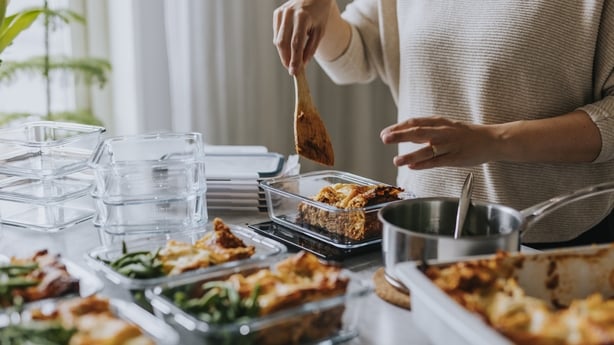Shopping for food on a shoestring budget can be challenging, but with some planning and smart choices, it’s entirely possible to eat well without breaking the bank or your pocket.
Whether you’re trying to save money, live month to month on your wages, or just want to be more mindful of your spending, John Lowe of MoneyDoctors.ie shares some tips that can help you make the most of your limited food budget.

1. Plan your meals in advance
One of the most effective ways to save money is to plan your meals before grocery shopping. Create a weekly menu based on affordable ingredients, and make a detailed shopping list. This prevents impulse buys and helps you stick to essentials. When planning, incorporate versatile ingredients that can be used in multiple dishes, such as rice, beans, eggs, and seasonal vegetables.
2. Make a budget and stick to it
Set a specific amount for your groceries each week. Once you know how much you can spend, prioritise purchasing necessary items over luxury or convenience foods. Use cash or a dedicated grocery budget app to monitor your spending and avoid overspending.
3. Shop internal sales and use coupons
Keep an eye out for weekly sales, discounts, and coupons. Many stores have loyalty programmes that offer discounts or cashback. Stock up on non-perishable items when they are on sale, such as canned goods, pasta, and rice. Buying in bulk can be more cost-effective, especially for the staple foods you use frequently.

4. Choose store brands
Generic or store-brand products are usually cheaper than name-brand items and often of similar quality. Switching to store brands for things like pasta, cereal, and canned goods can lead to significant savings over time.
5. Focus on whole, unprocessed foods
Processed foods tend to be more expensive and less healthy. Focus on whole foods like grains, legumes, fresh or frozen vegetables, and inexpensive cuts of meat or plant-based proteins. Lentils, beans, and chickpeas are excellent sources of protein and fibre, and they are very affordable.
6. Buy in bulk and use pantry staples
Buying in bulk is a cost-effective way to stock up on essentials. Items such as rice, oats, flour, sugar, and dried beans are cheaper per unit when purchased in larger quantities. Keep your pantry stocked with these staples to prepare quick and filling meals.
7. Embrace plant-based meals
Took me a while to accept this concept, but found they were very good for health. Meat can be one of the most expensive parts of a meal. Incorporating more plant-based dishes like vegetable stir-fries, bean burritos, or pasta with tomato sauce can make your meals more nutritious, filling, and budget-friendly.

8. Cook at home
Eating out or ordering takeout can quickly drain your budget. Cooking at home allows you to control ingredients and portion sizes. Batch cooking and meal prepping save time and money, and leftovers can be used for future meals and frozen.
9. Grow your own food
If you have space, growing herbs, vegetables, or fruits can reduce grocery bills. Even small container gardens on a balcony can provide fresh herbs or cherry tomatoes.
10. Be flexible and creative
Use what you have on hand and be willing to adapt recipes based on what’s affordable and available. For example, if a certain vegetable is out of season or expensive, substitute it with a cheaper alternative.
11. Avoid waste
Use leftovers creatively to avoid throwing away food. Turn leftover roasted vegetables into a frittata or add cooked grains to soups. Proper storage extends the life of your food and reduces waste.

12. Track your spending and adjust
Keep a record of your grocery expenses to identify spending patterns and areas where you can cut back further. Regularly reassess your shopping habits to find new savings opportunities.
13. Seek community resources
If your budget is very tight, look for local food banks, community gardens, or assistance programmes that can help supplement your food supply.
Focus on buying versatile, nutritious staples, shop sales and in bulk, cook at home, and minimise waste. Over time, these habits can help you stretch your euro further and maintain a healthy diet without financial stress.
Remember, with thoughtful choices and a bit of effort, you can enjoy satisfying meals that nourish your body while respecting your budget constraints.
The views expressed here are those of the author and do not represent or reflect the views of RTÉ.
For more information, click on John Lowe’s profile above or on his website.

